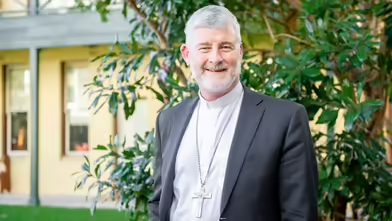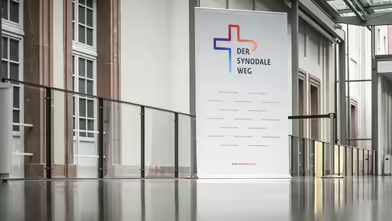Hier geht's zur deutschen Version des Interviews!
DOMRADIO.DE: You have a unique perspective on the synodal reform projects of the Church. You were vice-president of the Australian Plenary Council, you helped draft the final document at the Synod in Rome and you were an official observer of the Synodal Path in Germany. When you look at these three dimensions of synodality, where do you see overlaps or points of friction?
Bishop Shane Mackinley (Bishop of Sandhurst in Australia): There is and always will be tension and friction. We come from such different cultural backgrounds. That is also part of the basic idea of synodality: using these tensions constructively and respectfully to move forward together.
I feel very privileged to have been able to familiarise myself with these three very different approaches. Each of them was a step on this common path that we are travelling as a church. A path of learning. Synodality is actually nothing new. The word is new, but the approach is part of the basic idea of the church.
Since we as Christians are all children of God, we can only walk this path together. Each of us has our own valuable contribution to make. As a community, we must now learn to capitalise on this broad spectrum.
If we look at the various synodal processes, this becomes more than clear. On the one hand in the difference in approaches - between Germany and Australia, for example - but also in the different views.
It is not surprising that there are many overlaps in the challenges and problems. We see this particularly in the continental stages of the Synod. Here in Australia, for example, this has encouraged many Christians on their reform journey to see how similar the challenges are everywhere.
What is different, however, is the way in which the various churches have come to this realisation. At the Synod in Rome, we all sat around large, round tables and got to know different ways of life. That was a great gift. As there were only five official languages, very different worlds came to light at the individual tables. We had the time and leisure not only to recognise this, but also to ask: How can your experiences contribute to our common journey as a global church? We then tried to find this path together.
In the process, I also realised: This path has no final ending point. It is a constant development of the Church that will accompany us for a very long time. On the other hand, this also means that we don't have a point at which we can take stock and conclusively speak of success or failure. It is about how we move forward and define this path together. There is an inherent dignity and wisdom in this that affects all aspects of church life. So it's not about the question: How do we make a synod work? It's about looking at everything we do from the perspective of synodality.
DOMRADIO.DE: What do Catholics in Australia think about this? Has the message reached the people in the pews?
Mackinley: There is a certain sense of optimism that the ideas we developed at our plenary council are now being discussed and implemented at an international level. But to be honest, there is also a bit of fatigue from all the discussions and committees that we have been holding at all levels for several years now. You can't ask the same questions over and over again without frustrating people a little. "We've already told you this many times."
You can say there is a hunger for reform, and respect for the fact that this process is now getting underway. You can see that both in the dioceses and in the parishes.
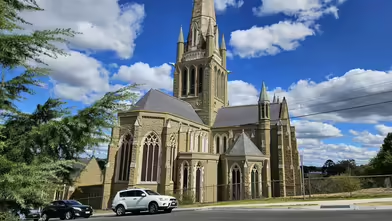
DOMRADIO.DE: From a German perspective, that sounds far too theoretical and unspecific. If you look at the approach of the Synodal Path in Germany: Have we gone in the right direction with our, very detail-orientated, technical and proficient process?
Mackinley: I hope that the rest of the world church can also be technical and proficient in a sense. My experience in the German church has been very encouraging and inspiring. They have embarked on the synodal journey with great integrity and seriousness. I realised this both as an observer in Frankfurt, but also in contact with the German representatives at the Synod in Rome.
In the German process, it was clear from the outset that questions and problems had been identified, the answers to which were and are essential for the future of the Church. This had to happen at a national level. The fact that the Church in Germany embarked on this path without hesitation took a lot of courage and deserves great respect.
Some areas have been tackled better than others. Others have remained unfinished and will certainly be taken up in the aftermath of the World Synod. The topics fit in very well.

I was very impressed by the preparatory work in the forums on the Synodal Path. They worked in a very synodal way. Important findings and documents were also produced there. These should not be overlooked. They are a very enriching source for the theology of the coming years and decades, because they provide a very comprehensive and detailed basis for the Church's reform approaches.
At the end of the Synod, the Pope set up ten working groups to deal with precisely these topics, which can refer very well to the findings from Germany.
So it's about both dimensions: What do we need to change and how do we need to approach this process. The ‘what’ was unavoidable in Germany, especially after the findings of the abuse scandal. Thank God that the Church in Germany took on this task with great courage. The whole process has helped us as a global church to understand how synodality can best be approached.
DOMRADIO.DE: In recent years, there have been some tensions between Rome and the German Bishops' Conference regarding the realisation of these goals. As an observer from the outside, do you think that the two sides will come together? You say that the German findings are also relevant to the global church.
Mackinley: Actually, they have already reached that point. A great deal of cooperation and understanding has grown on both sides, especially during the two sessions of the Synod in Rome. There is now a very good mutual understanding of the interests, fears and objectives of the two processes. There is great gratitude and respect on both sides.
My impression, without having taken part in the talks, is that they are now working together very concretely and constructively.
Only recently, the Pope approved a process for the next four years, which is precisely about systematically and concretely implementing the insights gained from the Synod. These are all topics that were highly relevant to the Synodal Path. This implementation happens at a local level, but of course also has global implications. I am very excited to see what contributions will come from Germany. The contributions from Germany were already a great enrichment for all of us at the Synod in Rome.
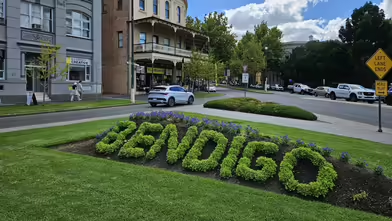
DOMRADIO.DE: What are you hoping for in the next four years? Will what the synodal processes of the last decade now be realised?
Mackinley: There is a lot I hope for, I can't reduce it to a single point. I can already see a wide variety of approaches to putting synodality into practice in the dioceses here in Australia. Above all, this requires a genuine interest in realising what the Pope actually means by the term synodality.
At an international level, this looks a little more formal, but it requires dialogue at various levels. The study groups that the Pope has set up as part of the Synod are a good and important step when it comes to concrete questions and problems. We are already seeing the first changes in canon law as a consequence. The preliminary report published by the papal commission addresses dozens of points. I assume that there will be even more as the processes progress.
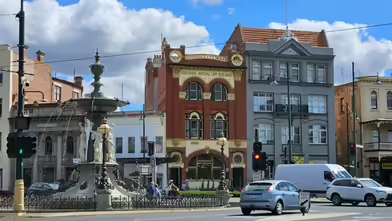
As you can see, it's about the many small details and not about the one big reform push that some might expect. One of these details that doesn't make the headlines but is of enormous importance is the question of accountability for bishops. This is the only way to not just stick to promises and intentions, but to actually follow through and make them public. In this way, we can also learn from the processes in other dioceses around the world.
I can already see many changes, but I also see a great deal of impatience for further reform steps. However, I think we are on a promising path for the coming years.
The interview was conducted by Renardo Schlegelmilch.
